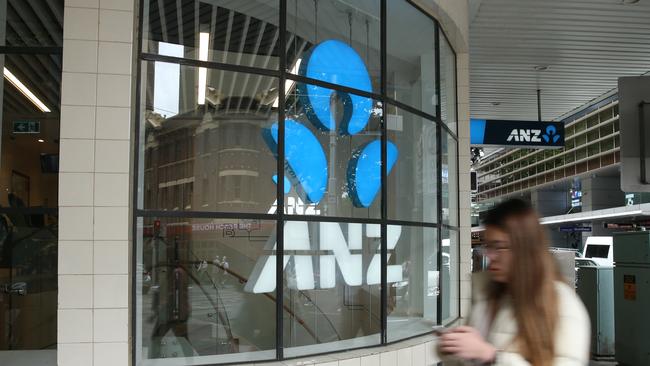NZ in ‘extraordinary’ push to deliver Aussie banks big legal win
A move impacting the nation’s biggest class action signals a much closer relationship between business and PM Chris Luxon.

Australia’s banks appear to have secured an extraordinary win in New Zealand, with the government attempting to prevent one of the country’s biggest class actions from moving ahead – even though the case is part way through the courts.
The unusual intervention by New Zealand’s Luxon government, which proposes to retrospectively change existing laws, could see the collapse of a long-running legal action affecting more than 170,000 mortgage customers of both Commonwealth Bank and ANZ.
The move, which has drawn intense public anger, also signals a much closer relationship between business and the centre-right New Zealand government under Prime Minister and former Air New Zealand boss Luxon.
The dispute centres on the country’s credit contracts and consumer finance rules which require banks to make disclosures to ensure a prospective borrower has enough information to make an informed decision before they enter into a loan contract. The focus is on whether disclosures were made when banks varied the loan contract.
Both CBA and ANZ have separately said they are defending the allegations. Neither bank has quantified potential losses from the legal action, although both have previously said customers have already been refunded with interest.
The class action was filed in New Zealand’s High Court in 2021, and follows ANZ and CBA’s New Zealand subsidiary ASB reaching settlements with the country’s commerce regulator about disclosure gaps. The move followed an investigation by NZ’s Commerce Commission.
Lawyers for the bank customers claim thousands of affected borrowers are entitled to refunds of interest and fees under existing laws. The case has already secured class certification, allowing it to proceed as a class action, and is awaiting summary judgment.
The legal filing claims as many as 101,000 ANZ customers are affected by the breach, and more than 73,000 customers from ASB. The disclosure failures covered by the NZ Commerce Commission review date back to 2015. ANZ and ASB bank are named as defendants in the class action.

New Zealand’s Luxon government early last year promised a reforms to credit rules to cut red tape while keeping consumer protections. Late last year, the government confirmed any rule changes would be prospective.
However, last month a draft proposed retrospective law changes, effectively quashing the legal grounds for the class action.
The proposed rule changes need to be introduced into New Zealand’s parliament and referred to a select committee.
Scott Russell, the lawyer leading the banking class action, labelled the planned law changes as an “outrageous use of power”.
“This isn’t about improving regulation or tidying up legislation – this is about changing the law after the fact to suit the banks who have already admitted to breaking the law. It’s deeply unfair, and consumers should be very concerned,” said Mr Russell.
The New Zealand Banking Association chief executive Roger Beaumont said the amendments would bring helpful clarification and certainty “to a confusing law”.
“It is important to note that consumers will still be protected, and lenders will still be appropriately held to account once the law is amended. Consumers and regulators can continue to bring CCCFA claims before the courts,” Mr Beaumont said.
“The changes simply confirm that, if a lender fails to meet their obligations, the courts can decide what is a ‘just and equitable’ outcome for that failure.”
ANZ hasn’t specified a specific contingent liability for the case. CBA has previously said the allegations made in the processing would potentially cover “hundreds of thousands of loans”.
It is understood both banks would continue to defend the legal action regardless of the regulation change.
The proposed change signals a changing relationship between the banks, each owned by Australia’s big four lenders, and the New Zealand government.
They had been at loggerheads with the previous Labour government, then led by Jacinda Ardern and later Chris Hipkins, over a tougher regulatory environment. Luxon’s government was swept into power in late 2023 with a pro-business platform.
At one point Westpac had threatened to exit the country entirely, given tougher capital rules imposed by the nation’s central bank required lenders to be entirely ring-fenced from their parents in Australia.
This was based on the notion that if the parent company encountered financial problems at home the New Zealand subsidiary could continue to operate.
However, it also meant the banks were forced to hold much higher levels of capital on their balance sheets.
ANZ is the biggest bank in New Zealand by market share, followed by Westpac and NAB-owned Bank of New Zealand. CBA’s ASB-bank is mostly Auckland-focused.
Combined, the four banks control more than 90 per cent of the nation’s home lending market.





